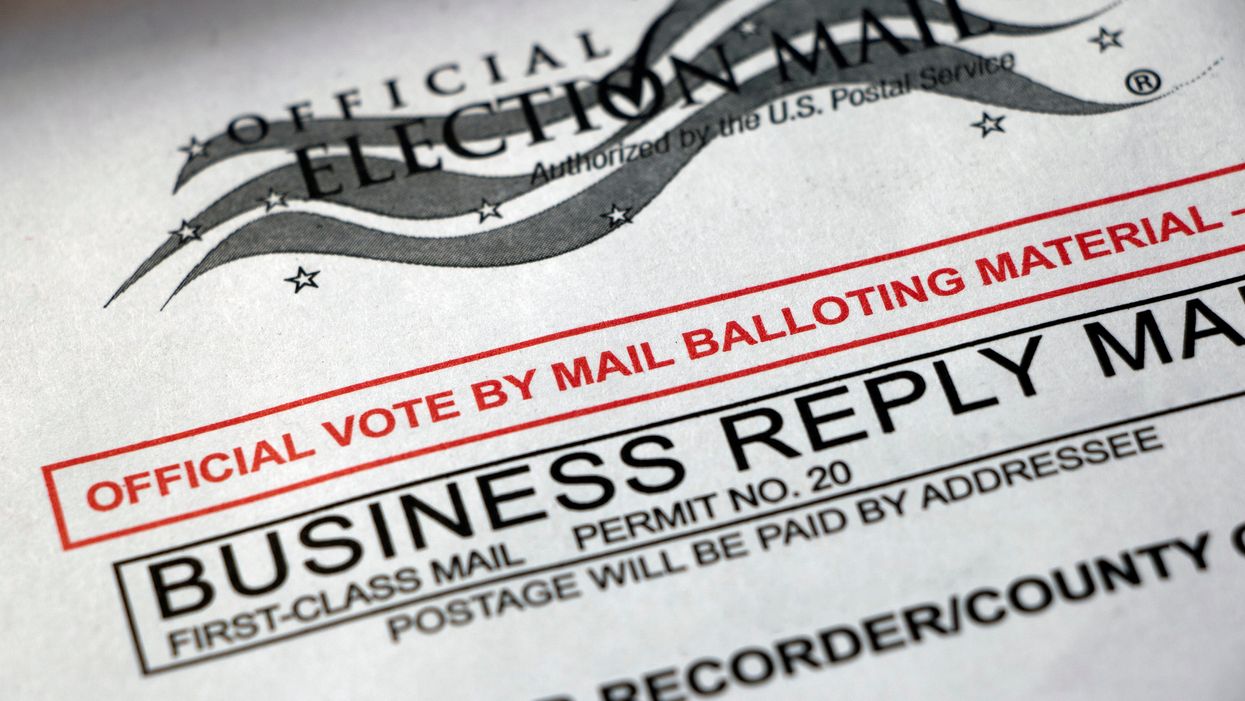The legal crusade to make mail voting easier this year has finally arrived in Arkansas, where some of the nation's toughest ballot restrictions haven't been challenged until now because the coronavirus pandemic arrived after the primaries.
Two prominent Democrats in the deeply red state filed a lawsuit Tuesday alleging the Arkansas election law flatly violates a 35-year-old state Supreme Court ruling that greatly expanded the right to absentee balloting. They asked a state judge in Little Rock to order election officials to stop demanding a detailed excuse from anyone who requests an absentee ballot — which resulted in 99 percent of votes being cast in person two years ago.
GOP Secretary of State John Thurston signaled he would fight the suit. "Given where we are at with the Covid-19 pandemic," he said, "the current voting system will be adequate."
The plaintiffs are Olly Neal Jr., who retired as the longest-serving Black appeals court judge in state history, and Susan Inman, a former top state elections official. Both are in their 70s and assert they fear catching Covid-19 if they are compelled to vote in person Nov. 3.
Their case, like many others across the country, argues that requiring an excused absence from a polling place — the sort of close-quarters indoor space where the coronavirus can be most easily spread — will force voters to make an unconstitutional choice between participating in democracy and protecting their health.
The novel twist is that the law — which allows absentee voting only for those who are in the military or traveling overseas or can provide evidence they will be "unavoidably absent or unable to attend an election due to illness or physical disability" — seems to fly in the face of the view of the state's highest court.
It held in 1985 that voters are not required to explain why they do not want to vote in person and "that any and all reasons or excuses are valid, legitimate excuses for an Arkansas citizen to be unavoidably absent."
The litigation is the latest in a nationwide wave of efforts in federal and state courthouses to make voting both easy and safe this year — mainly by expanding use of the mail, which President Trump asserts without any evidence will lead to a wave of fraud. But, no matter what, the president can relax about holding the six Arkansas electoral votes and the entirely Republican congressional delegation is sure to stay that way.
The number of Covid-19 cases has doubled in Arkansas the past month, even as the spread of the disease has declined in most states, and 227 people have died.
The state's primaries were in early March, a couple of weeks before the pandemic forced a nearly nationwide shutdown. Republican Gov. Asa Hutchinson has never issued a statewide stay-at-home order, but he did sign an executive order allowing no-excuse absentee voting in a May special election.
The GOP-dominated General Assembly in April blocked Democratic legislation that would have allowed all voters to choose for this year only whether to cast ballots by mail or in person.
The suit seeks to make the state spend its $4.7 million in federal election aid on sending absentee applications to all registered voters in postage-paid ballot return envelopes and local drop boxes.




















Marco Rubio is the only adult left in the room